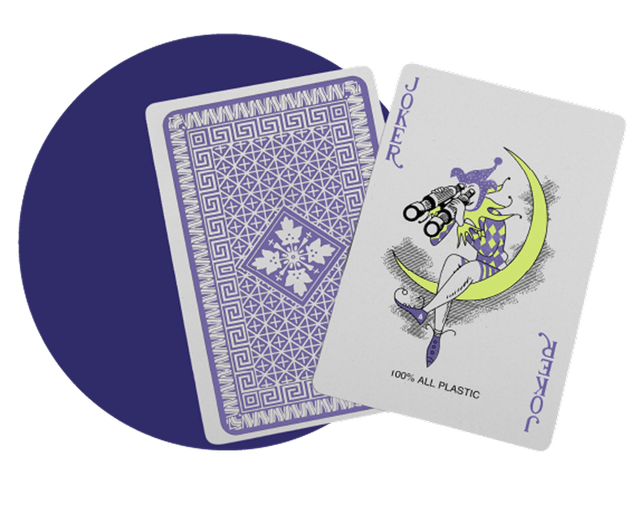What is CRM Automation?
Customer Relationship Management (CRM) automation involves using software tools and technologies to streamline and automate different CRM tasks. This includes automatically responding to customer activities in real~~-~~time to enhance brand relationships. It encompasses tasks such as data collection, analysis, customer communication, and workflow automation, all aimed at boosting efficiency, productivity, and effectiveness in managing customer interactions across the entire customer lifecycle.
CRM automation is essential in modern businesses as it enables organizations to manage and nurture customer relationships at scale. By automating repetitive tasks like manual data entry, lead nurturing, and personalized communication, brands can save time, reduce human error, and ensure consistent customer engagement. Additionally, CRM automation facilitates more profound insights into customer behavior and preferences, enabling brands to deliver more targeted and personalized experiences. This ultimately leads to improved customer satisfaction, retention, and growth.
Some examples of how brands use CRM automation include organizing processes, managing customer data, supporting marketing efforts, integrating with sales, delivering insights, aiding customer support, and facilitating cross-departmental collaboration.
9 Benefits of CRM Automation
Leveraging CRM automation for marketing campaigns is not just advantageous—it's essential for any business looking to stay competitive, maximize efficiency, and deliver exceptional customer experiences. CRM automation gives marketers a better understanding of customer data, enabling more accurate campaigns and powerful insights. This accuracy translates into higher customer engagement and satisfaction as messaging becomes more relevant and personalized – ultimately boosting customer lifetime value and retention.
Here’s a list of CRM automation’s key benefits:
- Helps organize customer data - An automated CRM system collects and organizes all customer data in one place, ensuring easy access and improved data management for all departments within an organization.
- Refines customer segmentation - CRM automation enables precise customer segmentation. It uses data to create detailed customer profiles for targeted and relevant marketing.
- Automates personalized messaging - With automation, personalized messages are sent automatically when a specific action is triggered. This enhances customer engagement by delivering relevant content.
- Streamlines repetitive tasks - Automating repetitive tasks saves time and reduces manual effort, allowing teams to focus on strategic and creative activities.
- Removes human error - Automation minimizes the risk of human errors in data entry and processing, ensuring more accurate and reliable data.
- Increases productivity - Automating routine tasks significantly boosts productivity, allowing teams to achieve more in less time.
- Improves performance - Automated CRM systems provide real-time insights and analytics, which help teams make informed decisions and improve overall performance.
- Boosts scalability - Automation supports business growth by efficiently handling increased workloads. It ensures the CRM system scales to meet a business’s needs.
- Drives growth and retention- Automated CRM enhances customer experience through personalized interactions. This drives both growth and customer retention.
CRM Marketing Automation Examples
We will now look into 2 real-world examples of how CRM automation can help your marketing.
1. Email Marketing
Email marketing is an excellent example of an automated CRM task. It enables personalized and targeted communication through automated campaigns and customer journeys. Email marketers can nurture leads throughout the sales, conversion, and retention funnel, leverage behavior-based triggers, and optimize segmentation through automation.
By harnessing the power of CRM automation in email marketing, brands build stronger, long-lasting customer relationships. Here are some of the ways that brands drive engagement, and boost sales and revenue with email marketing:
- Personalized Email Campaigns: With CRM automation, businesses can segment their customer database based on various criteria such as demographics, purchase history, product preference, and so much more. This segmentation allows for highly targeted and personalized email campaigns tailored to each customer segment's specific interests and preferences.
- Automated Email Marketing Journeys: CRM automation enables the creation of automated email marketing journeys that are triggered by specific actions or events or lack thereof. For example, brands can set up welcome email sequences for new subscribers, abandoned cart reminders for customers who left items in their online shopping carts, or birthday greetings with special offers and bonuses for loyal customers. They can also send promotional offers to lapsed users to return. These automated emails ensure timely, personalized, and relevant communication with customers throughout their journey with a brand.
- Lead Nurturing: Email automation is crucial in lead nurturing, as it delivers relevant content to prospects at various sales funnel stages. Through automated drip campaigns, businesses can educate leads, build loyalty, and guide them toward purchasing. By tracking email engagement metrics such as opens, clicks, and conversions, brands can refine their nurturing strategies for optimal results.
- Behavior-Based Triggers: CRM automation allows businesses to set up behavior-based triggers to send targeted emails based on specific actions. For example, if a customer downloads a whitepaper or attends a webinar, they can receive follow-up emails with related content or offers. By leveraging customer data, brands can deliver relevant and contextual emails that resonate with customers.
- Email Personalization: CRM automation empowers businesses to personalize email content and messaging based on individual customer data. This includes dynamically inserting customer names, recommending products based on past purchases, or tailoring messaging based on geographic location or browsing history. Personalized emails have higher open and click-through rates (CTR), improving engagement and conversion rates.
- Customer Segmentation: Brands can leverage email marketing through micro-segmentation by dividing their customers into precise target groups based on various factors, including behavioral predictions (based on historical data.) Micro-segmentation allows marketers to direct specific actions to each segment, maximizing the effectiveness of every customer interaction. By analyzing customer behavior over time and continuously tracking and monitoring customer segments, brands can deliver highly personalized and relevant email content to each segment, optimizing engagement and driving results.
2. AI Chatbots
AI chatbots are intelligent software programs that simulate human conversation and perform tasks autonomously. When integrated into CRM systems, these chatbots provide a direct interface between customers and businesses, offering immediate assistance and support around the clock.
Software bots, such as AI chatbots for customer service automation, allow marketing and sales teams to work more smoothly. This automation streamlines processes and fosters better communication between them.
AI chatbots are a specific example of CRM marketing automation by automating customer interactions, providing personalized support, generating and qualifying leads, facilitating follow-ups, collecting feedback, and seamlessly integrating with CRM systems to enhance overall efficiency and effectiveness in customer relationship marketing. Here’s some more details:
- 24/7 Customer Support: Chatbots can respond instantly to customer inquiries and support requests, regardless of the time of day. This ensures customers receive instant assistance and help, improving satisfaction and loyalty.
- Personalized Interactions: Advanced chatbots can analyze customer data stored within the CRM system to personalize interactions. By accessing past purchase history, browsing behavior, and product preferences, chatbots can tailor responses and recommendations to each individual customer, enhancing the overall experience.
- Lead Generation and Qualification: Chatbots can engage website visitors in interactive conversations to capture leads and qualify prospects. By asking relevant questions and guiding users through a series of prompts, chatbots can gather valuable information and identify high-potential leads for further nurturing by the sales team.
- Automated Follow-Ups: Chatbots can automate follow-up communication based on predefined triggers after initial customer interactions. This could include sending personalized follow-up emails, scheduling follow-up calls, or providing additional product information, contributing to lead nurturing and conversion.
- Feedback Collection: Chatbots can actively solicit customer feedback regarding their experiences with products or services. By conducting surveys or asking for ratings and reviews, chatbots help businesses gather valuable insights into customer satisfaction and areas for improvement, facilitating continuous refinement of marketing strategies.
CRM vs. Marketing Automation
How does CRM differ from marketing automation?
Customer relationship management (CRM) (CRM) refers to the use of strategies, tactics, and technologies to manage relationships with customers throughout their lifecycles. Marketing automation (MA) refers to using technology software to automate marketing tasks and workflows. Marketers use marketing automation to be more efficient and effective in executing marketing strategies and pull data from their CRM. Commonly automated tasks include sending pre-scheduled campaigns via email, social media, and SMS.
How Do CRMs and Marketing Automation Work Together?
Integrating CRM and marketing automation tools streamlines the customer journey and enhances marketing alignment, resulting in a more rewarding and enriched customer experience. This symbiotic relationship optimally positions sales teams for success and minimizes friction points in customer interactions.
The synergy between CRM and marketing automation is most effective when they are seamlessly integrated, working hand in hand to deliver exceptional results. CRM and MA complement each other to provide a comprehensive approach and integrating the two systems enables brands to align their marketing and sales efforts, enhance customer engagement, and drive revenue growth.
Further Reading
Optimove's platform offers powerful CRM automation features that elevate marketing campaigns:
- Micro-Segmentation: Micro-segmentation is a more advanced form of segmentation that groups small numbers of customers into extremely precise target groups based on various factors, including demographics, past activity, and behavioral predictions. Marketers can then direct specific marketing actions to each micro-segment to maximize the effectiveness of every contact with each customer.
- Predictive Analytics/Behavior Modeling: Predictive behavior modeling is the science of applying mathematical and statistical techniques to historical and transactional data to predict customers' future behavior.
- Email Marketing: Email marketing is a cost-effective marketing strategy that allows brands to connect with customers and increase sales. It is a form of direct marketing that uses personalized emails to entice customers about a brand’s product or service. Personalized email marketing is one of the most effective ways to nurture leads and boost customer loyalty.
- Mobile Marketing - Mobile marketing is any advertising or marketing campaign that promotes products or services through mobile devices. Most people always have their phones with them, allowing brands to connect with customers in real-time, at any time. By connecting with customers through mobile devices, brands create a cohesive and engaging customer experience.
- SMS Marketing - “Short message service,” or SMS Marketing, is a form of mobile marketing many businesses use to send promotions and offers to customers through text messages. While mobile marketing includes any marketing campaign that promotes products or services through mobile devices, SMS Marketing focuses explicitly on marketing through text messages.
- Journey Orchestration: Journey Orchestration helps marketers manage and plan the timing and sequencing of channels for multichannel marketing campaigns and journeys. It empowers marketers to set goals and apply relevant customer insights for CRM marketing success.
Optimove empowers marketers to deliver personalized, data-driven campaigns that drive engagement, loyalty, and revenue growth. For more insights, contact us to Request a Demo.




